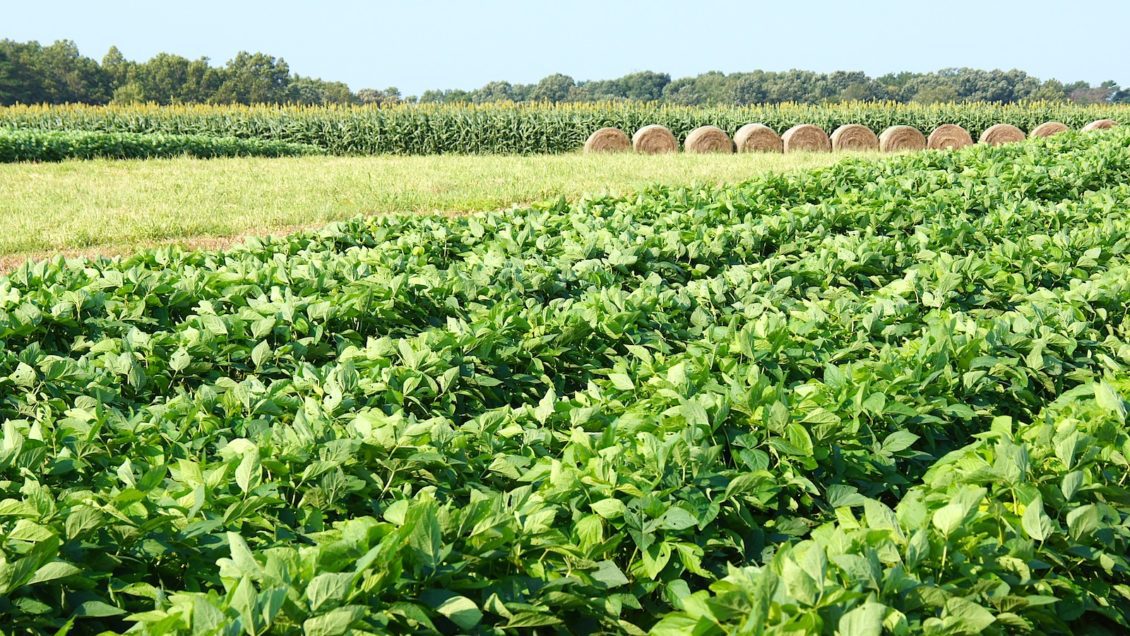SANTEE – Nutrient management, irrigation and agronomic strategies, and management for early-maturing soybeans are on the agenda for the Clemson Cooperative Extension Service’s 2019 South Carolina Corn and Soybean Growers Meeting on Dec. 10.

The meeting gets underway with registration and trade booths opening at 8:30 a.m. at the Santee Convention Center, 1737 Bass Dr., Santee, S.C. 29142. Jay Crouch, Clemson Extension area agent for agronomic crops, said the meeting is geared toward farmers, but input suppliers will benefit as well.
“The agenda for this year’s meeting covers a variety of topics corn and soybean growers will find useful as they prepare for next year’s crops,” Crouch said. “We encourage everyone to come and learn how they can grow more profitable crops.”
Speakers for this year’s meeting include James Camberato, agronomy professor and Extension specialist from Purdue University, who will talk about managing nutrients for profitable corn and soybean production. Camberato is an expert in soil fertility and plant nutrition. His research and Extension programs center on soil fertility, fertilizers and plant nutrition. Camberato has placed specific emphasis on determining appropriate rates of nitrogen fertilization for corn and evaluating tools for fine-tuning nitrogen recommendations.
Jason Krutz, director of the Mississippi Water Resources Institute, interim director of the Mississippi River Valley Alluvial Aquifer Water Center and a professor in the Mississippi State University Department of Plant and Soil Sciences, will speak on irrigation and agronomic strategies that improve yield, net return and efficient water use.
“In periods of deflated commodity prices, it is critical that we minimize risk while maximizing yield and net return potential under our most productive ground, or irrigated environments,” Krutz said. “We use a commonsense approach to illustrate how slightly altering existing agronomic practices and using sensors to schedule irrigations improves crop productivity while minimizing water use.”
Rachel Atwell Vann, an assistant professor and soybean Extension specialist with the North Carolina State University Department of Crop and Soil Sciences, will talk about managing early-maturing soybeans in the Carolinas. Adding earlier maturing soybeans into a Carolina row crop rotation is not going to be a good fit for all growers, especially those with complex rotations who have many other demands on their time in August, September and October, she said. But, for growers who have the ability to harvest soybeans in an earlier-than-normal timeframe, this production can be considered for various benefits.
“Many growers have found success in North Carolina achieving higher than traditional soybean yields by integrating early maturing soybean varieties into their rotations,” Vann said. “Fifteen years ago, about 25% of the entries into the North Carolina Soybean Yield Contest came from MGIII and MGIV varieties and in 2018 more than 80% of the entries were from MGIII and IV varieties. If this production practice can fit into growers’ rotations, if may prove profitable as a mechanism to increase soybean yield or receive premiums for early delivery. I will discuss various benefits and challenges associated with this production practice.”
There is no charge for this meeting, which is expected to end at about 3:30 p.m. Lunch will be provided. For more information, contact Jay Crouch at (803) 276-1091 or alfredc@clemson.edu, Charles Davis at (803) 874-2354 or cdvs@clemson.edu or Jonathan Croft at (803)-534-6280 or croft@clemson.edu.
Certified crop adviser and continuing education certification hours for pesticide applicators have been applied for.
-END-
Get in touch and we will connect you with the author or another expert.
Or email us at news@clemson.edu

